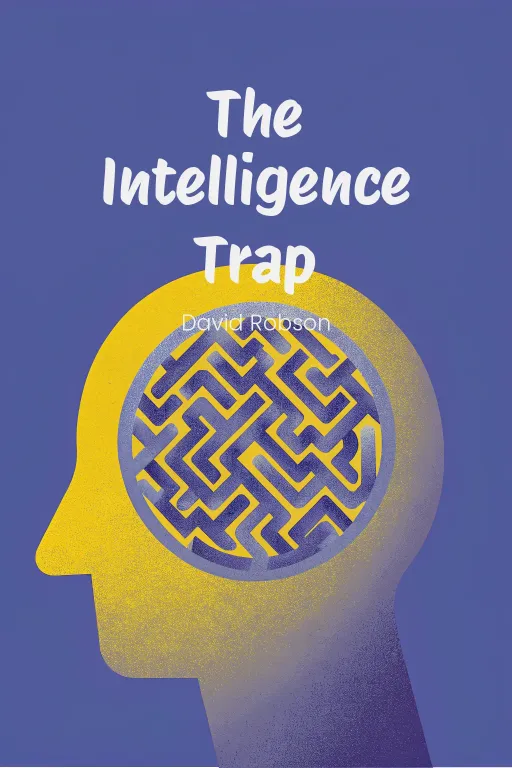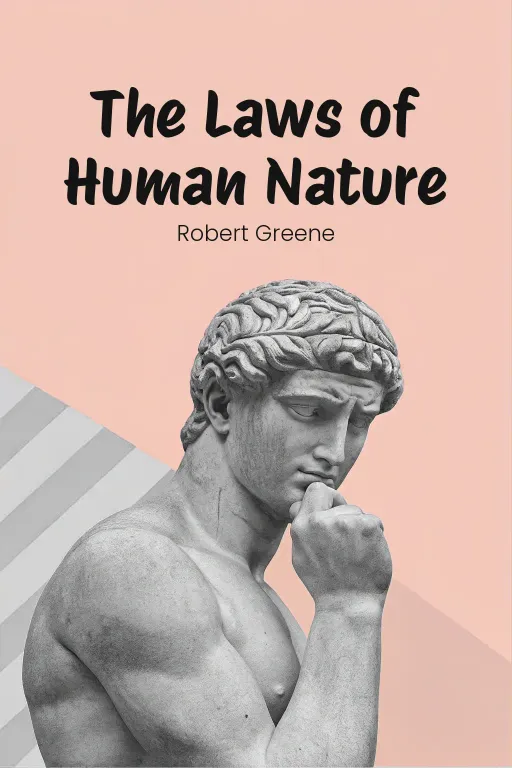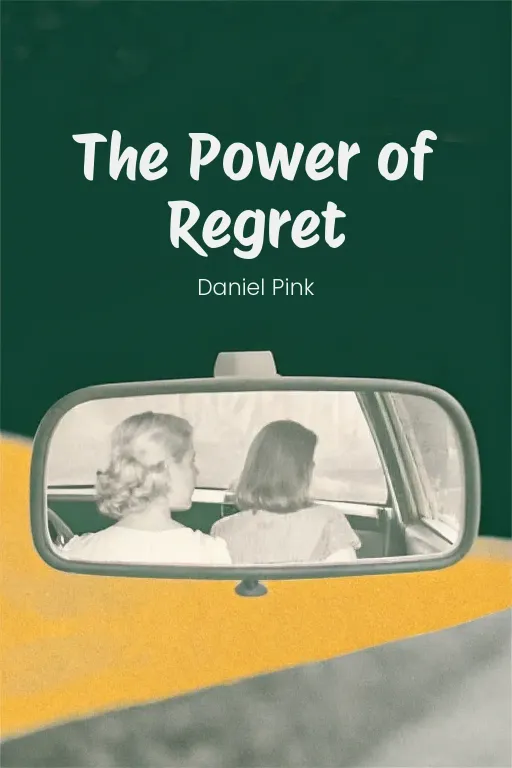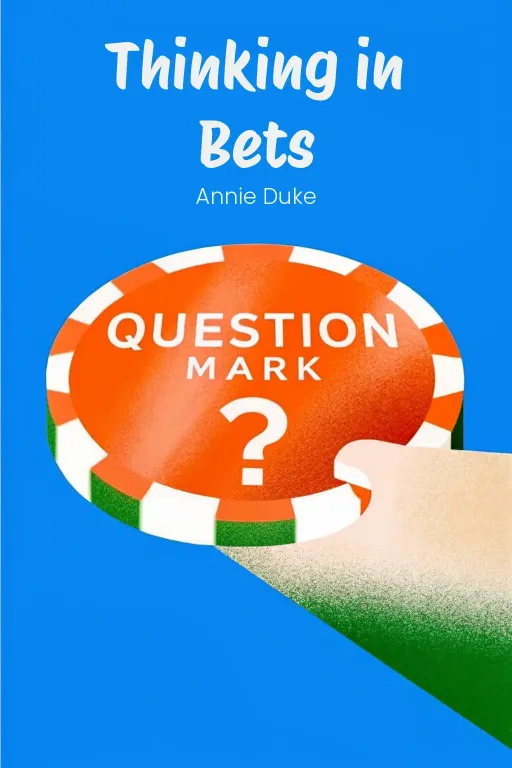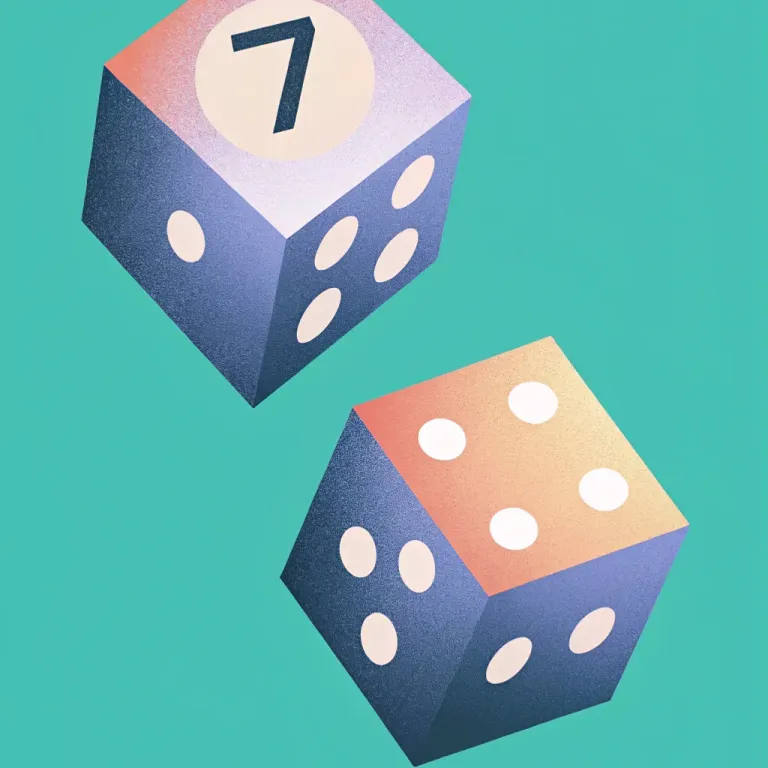
Better Bets: Smarter Decisions, Less Regret
Podcast by Beta You with Alex and Michelle
Making Smarter Decisions When You Don’t Have All the Facts
Better Bets: Smarter Decisions, Less Regret
Part 1
Alex: Hey everyone, welcome back! Today, we're talking about something we all do constantly: making decisions. And here's the thing – every single decision is, in essence, a bet. Seriously! Even choosing between coffee or tea this morning was a bet on what would get you going. Michelle: Exactly, Alex. But let’s be real, most of us make decisions kind of haphazardly, right? Like flipping a coin: coffee if it's heads, tea if it's tails. Then, when we're a nervous wreck by midday, we blame it on "bad luck." So, how can we bring a little more strategy and a little less chaos to the decision-making game? Alex: That's where Annie Duke's book, "Thinking in Bets," comes in. She's a former pro poker player, and she argues that poker is actually a great model for life. It's all about navigating uncertainty, dealing with limited information, and understanding probabilities instead of absolutes. What she does so well is show us that a good decision doesn't always guarantee a good outcome. And a bad outcome doesn’t necessarily mean you made a bad decision. That's a total game-changer, right? Michelle: Totally. Simply separating the quality of the decision from its result could save us from so many sleepless nights spent obsessing over past “mistakes”. And I appreciate how Annie dissects those mental traps, like motivated reasoning and self-serving bias, that cloud our judgment because our brains just hate dealing with uncertainty. Alex: Absolutely. And it’s not just about identifying the problem. She gives us solutions. We're going to break down three key principles from the book today. First, we'll explore why decisions truly are bets – and what kind of doors that realization can open. Next, we'll dive into how those pesky cognitive biases can trip us up and distort our thinking. And finally, we’ll go through Annie’s strategies—things like scenario planning and mental time travel—that can really level up our decision-making process. Michelle: So, you can sit there blindly hoping for a good hand, or you can start playing smarter, hedging your bets and reading the room. Ready to lay down the first card, Alex? Alex: Deal me in!
Understanding Decision-Making as Bets
Part 2
Alex: Okay, so let's dive into Annie Duke's core idea: seeing decisions as bets. Michelle, think about it. Every single choice we make, whether it's what to have for breakfast or a major life decision, involves some level of uncertainty. We're essentially placing a bet on a future outcome based on the info we've got right now. Michelle: Right, I get that. But, honestly, what difference does it “really” make to call decisions "bets?" Sounds a bit like splitting hairs, doesn't it? I mean, a decision is a decision, right? Why the need for a new label? Alex: It might seem like just semantics initially, but the real power lies in the mindset shift. When we frame decisions as bets, we're acknowledging upfront that we don't have all the answers, that there's always some degree of risk. It's not about being 100% right or wrong, but more about weighing the odds and making the most informed choice we can under the circumstances. This helps us focus on the process of decision-making, rather than just obsessing over the final outcome. Michelle: Right, so it's like saying, "Judge your poker play by how well you played the hand, given the cards and odds, not just whether you won." Makes sense on paper, but…aren't humans hardwired to focus on results? Take that Seahawks Super Bowl play Duke talks about. Isn’t that classic hindsight bias in action? Alex: Absolutely! We love to judge decisions by their results, ignoring the reasoning behind them. That Seahawks example is a perfect illustration, so let's break it down. Super Bowl XLIX, the Seahawks are trailing the Patriots by four points, it's second-and-goal from the one-yard line, last minute. Coach Pete Carroll calls for a pass instead of handing the ball to Marshawn Lynch, their star running back. The pass is intercepted. Patriots win. Instantly, Carroll's decision is "the worst call in Super Bowl history." Michelle: Exactly. Because everyone watching thinks, "You have Marshawn Lynch! Just run it up the middle!" But Duke defends Carroll's decision, right? Alex: Yes, and with good reason. When you analyze the situation using probabilities, Carroll’s decision actually wasn't that crazy. Statistically, a pass in that specific scenario had a higher chance of success than a run, especially with how the Patriots defense was lined up. Plus, if it failed, it stopped the clock. It wasn't some reckless gamble; it was a calculated decision based on game theory. But, because it ended in an interception – an undesirable outcome – people automatically wrote off the decision itself. Michelle: Okay, fair enough. But stepping back a bit... how do you separate the decision from the result in real time? Isn't the whole point to win? If the outcome is bad, it feels almost automatic to think, "Well, that must have been a terrible decision." Alex: That's the real challenge, isn't it? And that's precisely where "thinking in bets" can help. It encourages us to reframe our internal dialogue. Instead of fixating on "Did it work?", which is all about the outcome, Duke suggests asking, "Was it a good bet?" This forces us to examine the reasoning behind the choice. Did we consider all the relevant information? Did we properly assess the risks and potential rewards? If we made a sound bet and still lost, that’s an opportunity to learn and improve, not to just beat ourselves up or dismiss the approach. Michelle: So, in essence, it's about the process, not just the outcome. Think about it in real life terms, like starting a business. I quit my job based on solid data showing a 70% chance of success. Great odds, right? But if the market tanks and I fail, people will call me reckless. How do I defend that decision with hindsight? Alex: That's where focusing on the process becomes crucial. If you can demonstrate that your decision was built on solid foundations, like through thorough market research, strategic planning, and careful risk management, then the failure doesn’t automatically invalidate your decision. What you're essentially doing, Michelle, is distinguishing between luck and skill. Luck, like a sudden market crash, is beyond your control. Skill is what you bring – your preparation, your execution. Duke emphasizes that you can only improve the latter. You can't control the cards you're dealt, but you can play them to the best of your ability. Michelle: I like that. So failure becomes less of a giant shame spiral and more of a…feedback mechanism. If things go south, it might not have something to do with your strategy and more something out of your control. Duke emphasizes self-forgiveness here, doesn’t she? Alex: Exactly. This mindset is what builds resilience. Instead of spiraling into self-blame – or, on the flip side, getting overly confident after a win – you're constantly reflecting and improving. It's about refining your decision-making process, not chasing some impossible ideal of perfection. And speaking of reflection, Annie offers some practical tools for applying this mindset, like probabilistic thinking and truth-seeking groups. Should we get into those next? Michelle: Yeah, let’s do that. You’ve convinced me we’re all gamblers. Now tell me how to improve my odds.
Cognitive Biases and Their Impact
Part 3
Alex: So, building on that foundation, let's dive into how cognitive biases can “really” skew our perception of decisions and their results. This part’s all about pinpointing the common pitfalls that trip us up when we're trying to make good choices. And Michelle, like Annie says, if we're all essentially gamblers, then cognitive biases? They're like loaded dice, stacking the odds against us without us even realizing it. Michelle: Exactly. And Annie “really” zeroes in on three major culprits: resulting, hindsight bias, and motivated reasoning. These aren't just academic concepts; they actively sabotage how we learn from our experiences. So, let's tackle these one by one, starting with resulting. Alex, how would you explain “resulting” in the simplest possible terms? Alex: Okay, so resulting is basically judging the quality of a decision based solely on its outcome. A bad result automatically equals a bad decision, even if the thought process was completely solid. Which is super misleading, right? Because it totally ignores the role of chance and probabilities. Michelle: Which brings us back to Pete Carroll's infamous Super Bowl play. It's the ultimate example of how resulting can blind us. Remind everyone of the specifics, Alex. Alex: Alright, Super Bowl XLIX. Seahawks are down by four, seconds on the clock, and they're literally a yard away from the end zone. Everyone expects Marshawn Lynch to run it in, but Pete Carroll calls for a pass. Intercepted by Malcolm Butler. Game over. Championship lost. Almost instantly, Carroll gets hammered by everyone, called out for "the worst call ever." Michelle: And honestly, when you watch that play in slow motion, knowing how it ends, it feels like the worst call. But wasn't Carroll actually playing the odds there? Alex: Absolutely! Statistically, that interception was a total fluke – passes from that close are intercepted, like, 1% of the time. Carroll’s decision made sense: surprise the defense, boost the chances of a touchdown, and, worst case scenario, they still have time for another play. But the bad outcome overshadowed everything. Resulting turned a perfectly rational decision into a complete disaster in the public eye. Michelle: It’s like we want to believe that outcomes are predetermined. If something goes wrong, it had to be a bad decision. But this is where probabilistic thinking comes in. We're talking about a game where you can get unlucky, even when you play perfectly. Alex: Exactly. And this has huge implications beyond just football or poker. Think about decisions in business or healthcare. If a CEO takes a calculated risk that fails, or a doctor chooses a treatment with the best odds and it still goes wrong, we jump to blame them. It's a “really” shortsighted way of learning, because it focuses solely on the outcome instead of the why behind the decision. Michelle: And speaking of shortsighted, that brings us to hindsight bias, which takes this whole thing to another level. That's the classic "I knew it all along" trap, right? Alex: Exactly. Hindsight bias is when we look back at events and convince ourselves they were inevitable or totally predictable. That Seahawks play? After the interception, everyone insisted it was "obvious" the pass would fail. But before the play, no one was saying that an interception was a sure thing. Hindsight bias wipes away all the uncertainty that was actually there in the moment. Michelle: And that's dangerous because it makes us so overconfident. If we think we "knew it all along," we don't bother considering what information we didn't have at the time, or how we might have misread the risks. It creates this illusion that we're always right, instead of pushing us to question our reasoning. Alex: Right. And even worse, it can lead to “really” unfair self-criticism. Pete Carroll himself later called that play “the worst result” of his coaching career, almost like he internalized all the public negativity. But Annie Duke's point is, Carroll didn't make a bad call; he just had a very low-probability bad outcome. It’s a huge distinction. Michelle: And this bias isn't just about sports either. Think about investing in a promising startup that collapses due to unforeseen circumstances. Suddenly, everyone says, "Well, it was obvious that it wouldn't work!" But that's pure hindsight. It ignores the actual decision-making you did, considering the circumstances at the time. Alex: Which leads us to motivated reasoning, where hindsight bias and resulting find a comfortable home. It's that very human tendency to justify decisions or events in a way that fits our existing beliefs or desires. So, in your startup example, someone might cherry-pick information confirming that the company was always doomed, while conveniently ignoring all the data that originally made it look so promising. Michelle: Or in poker, you lose a hand, and instead of admitting you miscalculated or made a risky move, you blame bad luck, like the cards were out to get you. Motivated reasoning helps you protect your ego, but at the cost of honest self-reflection. Alex: Exactly. And that’s the core of the problem – it prevents us from growing. Motivated reasoning distorts reality so that instead of gaining insights, we end up repeating the same flawed thinking. Annie emphasizes this point: confronting uncomfortable truths, like admitting mistakes or recognizing the role of pure luck, is absolutely critical if we want to improve. Michelle: So, it’s pretty clear that these biases – resulting, hindsight bias, and motivated reasoning – can trap us in this cycle of distorted thinking. What's the antidote? How do we fight back against these mental traps and make better decisions? Alex: It starts with shifting our focus. Instead of obsessing over outcomes, we need to evaluate the quality of the decision-making process itself. Annie lays out some great tools for doing this: things like reflective questions, truth-seeking groups, and “really” embracing probabilistic thinking. Should we unpack those a bit? Michelle: Absolutely, yeah. If we're going to tilt the odds back in our favor, I want to know how to play the game smart.
Strategies for Better Decision-Making
Part 4
Alex: Recognizing these biases naturally leads to strategies for mitigating their effects. And that's where Annie Duke's toolbox really shines. This section moves from theory to actionable methods, tackling the challenges these biases present with tools like scenario planning, mental time travel, and truth-seeking groups. These aren’t just abstract concepts; they give us a framework for clearer thinking “and” more decisive action, particularly in uncertain and complex situations. Michelle: So, we're finally getting practical, huh? Let's dive into scenario planning and premortems first. Imagining all sorts of futures and preparing for failure sounds like some weird mix of sci-fi and therapy. What's the core idea here? Alex: Essentially, scenario planning is about envisioning multiple, plausible futures to develop more adaptable strategies. It’s not about predicting exactly what “will” happen, but preparing for a range of different possibilities. The goal is to avoid being completely blindsided. Think of it as a rehearsal for uncertainty, if you will. Michelle: Okay, but people generally “hate” uncertainty. Can you give me an example where this actually worked? Alex: Sure. Think about Shell Oil back in the 1970s. The global oil market was incredibly chaotic then — prices were all over the place, economies were really unsteady. So, Shell didn't even try to guess which specific scenario would play out. Instead, they prepared for a range of them: low prices, high prices, recessions, booms. This flexibility? It allowed them to adapt much faster than their competitors, no matter what actually happened in the end. Instead of trying to nail “the” future, they positioned themselves well for “many” futures. Michelle: So, it's like packing for a trip when you don't know the weather—shorts, an umbrella, and a heavy coat. You're just ready for anything. But isn't this exhausting? How do you avoid getting bogged down in endless hypothetical scenarios? Alex: That's a really insightful point, because there’s definitely a risk of overcomplicating things. The key is to focus on a few critical uncertainties—those things that are most likely to significantly impact your decisions. And this is precisely where premortems come into play. It's a surprisingly simple, yet very powerful exercise: you imagine that your project or decision has already failed. Then you ask, "Okay, “why” did it fail?” It flips the script, forcing us to consider those painful possibilities “before” they actually happen. Michelle: So, we're basically giving pessimists a structured way to shine, huh? I see how asking, "What could possibly sink this?" might surface risks you'd probably rather not think about. Got any real-world success stories with this one? Alex: Absolutely. Remember the After-School All-Stars nonprofit? They had been chasing grants based on face value—basically throwing resources at anything that looked big and shiny. But then, by using a scenario planning approach, they started actually analyzing the expected value of each opportunity. You know, factoring in not just the size of the grant, but also realistically, the likelihood of winning it. And then, when they layered on premortems, they were able to spot inefficiencies and avoid wasting energy on applications that were really long shots. And you know what? Fewer regrets, better outcomes, all around. Michelle: I like that—calculate the odds “and” avoid diving headfirst into money pits. Nice. But let’s switch gears. Mental time travel sounds a lot more philosophical. What's the practical side of this one? Alex: Well, mental time travel is all about bridging the gap between your present decisions and their future consequences. Essentially, it's about helping your present self be a little kinder to your future self. It tackles temporal discounting head-on, which is our tendency to favor that immediate gratification over longer-term rewards. Michelle: Ah, temporal discounting. So, “that's” why I raid the fridge at 2 AM. "Night Michelle" gets all the fun, while "Morning Michelle" gets none of the credit—and all the stomachaches, naturally. Alex: Exactly! Annie illustrates this with her "Night Jerry versus Morning Jerry" dilemma—Night Jerry stays up way too late, chasing short-term pleasure, while Morning Jerry is the one who deals with the consequences. Mental time travel forces us to connect those two versions of ourselves. One way to do that is visualization. For example, even digitally aging yourself, just to see what you'll actually look like in the future, can make those long-term consequences feel much more immediate. Michelle: Wait, so if I see my future self looking all stressed and broke, I'll be more likely to skip buying that shiny new gadget today? Alex: That's the idea! Studies show that people who engage with those kinds of tools, like age-progression software, actually significantly increase their retirement savings. When you vividly picture your future self, it feels less abstract, and honestly, it's a lot harder to ignore. Another method is the 10-10-10 technique—thinking about how a decision will affect you in ten minutes, ten months, and ten years. It’s all about bringing some perspective to those impulsive choices. Michelle: So, it’s like asking, "Will this midnight snack “really” matter a decade from now?" Probably not, unless it somehow triggers a lifelong cookie addiction. But I see how this reframes decisions to align with the bigger goals. Alex: Exactly. Being really deliberate about long-term thinking can really transform those short-term habits. And speaking of habits, let's shift gears to a team-based approach—truth-seeking groups. Michelle: Now “this” I'm curious about. Are we talking about teams that actually value good ideas over just plain old groupthink? Does such a utopia even exist? Alex: Ideally, yes! Truth-seeking groups create environments where members can actually challenge each other constructively, with genuine intellectual humility as a foundation. Take Alcoholics Anonymous, for instance. It’s a perfect example of accountability fostering growth. Members openly reflect on their decisions, they share different perspectives, and receive candid feedback. It’s a supportive, but also brutally honest space. Michelle: Okay, AA makes sense. But what about less... life-altering settings? Does this work in the workplace—or, say, poker groups? Alex: Definitely. In poker study groups, players dissect hands without blame, analyzing mistakes to understand precisely what went wrong. This fosters learning instead of defensiveness. The same principle totally applies to teams in workspaces. Research even shows that promoting dissent—what Philip Tetlock calls "organized skepticism"—leads to better decisions. It’s about creating a culture where disagreement explores possibilities versus just shutting people down. Michelle: And this dismantles motivated reasoning and groupthink, right? Because everyone's focused on genuinely finding the truth, not just defending their own pet ideas. Alex: Exactly. Plus, everyone benefits from the diversity of thought—it broadens perspectives and strengthens insights. Pair that with continuous improvement—treating failures as data points, rather than definitive losses—and you’ve got a super powerful, adaptive decision-making framework. Michelle: Okay, I'm sold. All these strategies—scenario planning, mental time travel, truth-seeking groups—sound like you're stacking the deck in your favor. Makes me wonder why more people don't take advantage of them, honestly. Alex: Probably because they take effort! But once they’re part of your decision-making habit, they really do pay dividends.
Conclusion
Part 5
Alex: Okay, so, to sum it all up, we’ve walked through Annie Duke’s “really” insightful idea that decisions are basically bets, right? Shaped by both what we know and just plain luck. And we dug into how biases—like, you know, focusing too much on results, hindsight bias, and letting what we want to be true cloud our judgment—can “really” mess with our decision-making. Plus, we talked about some “really” cool strategies—like thinking through different scenarios, imagining ourselves in the future, and bouncing ideas off of people who will actually challenge us—that can help us make better, clearer choices. Michelle: Yeah, and I think the real key takeaway here is that, once you start separating how good your decision was from whether or not it actually worked out, it completely changes how you see success and failure. It's not about being perfect, because let’s face it, that’s impossible. It’s about constantly improving your process. You know, accepting that things are uncertain, actually learning from what happens, and being ready to change course when you need to. Alex: Spot on. So, here’s what we want you to do: next time you’re staring down a big decision, don’t just ask yourself, "Is this going to work?" Instead, flip it around and ask, "Is this a good bet?" “Really” focus on why you’re making the choice, not just what you hope will happen. That’s the secret to getting better at making decisions over the long haul. Michelle: Right. And maybe, just maybe, try being brutally honest with yourself about how you’re thinking. Are you letting your biases basically rig the game against you? Or are you actually trying to tip the odds in your favor? Basically, play smarter, not harder. Alex: Exactly, Michelle. And on that note, we'll leave you all with this thought: life is always going to throw curveballs, but how you choose to make your decisions can make all the difference in the world. Happy betting, everyone!




